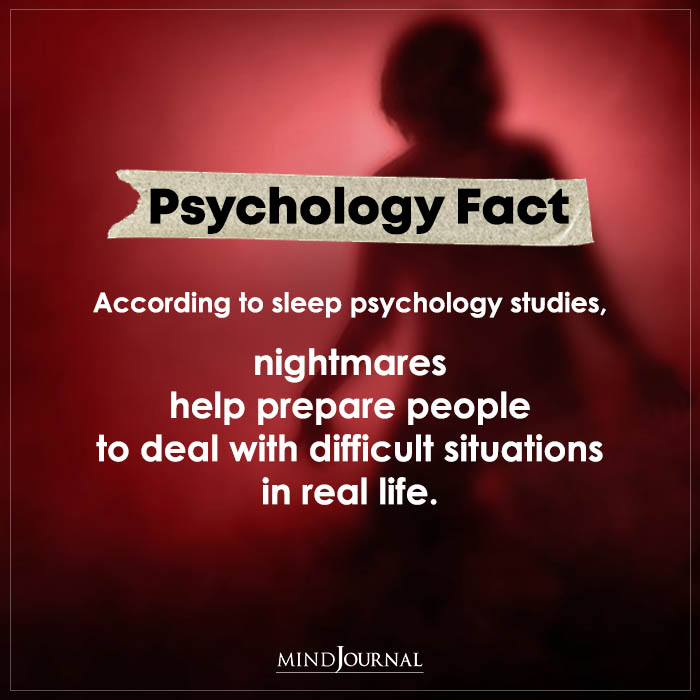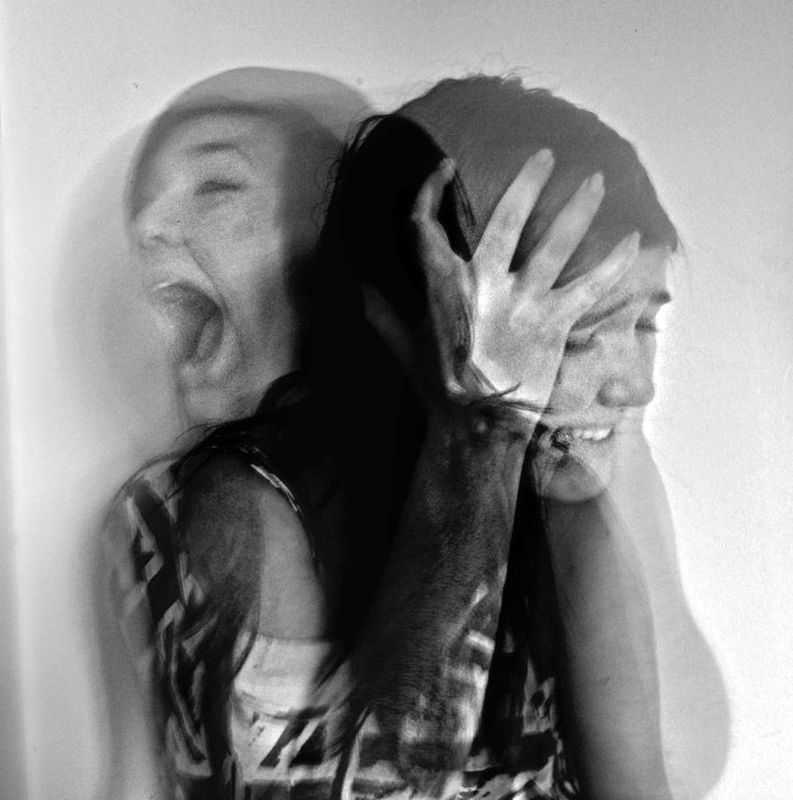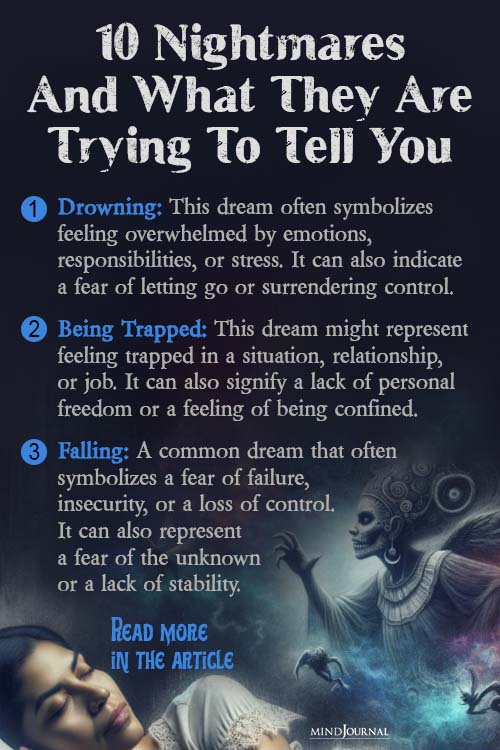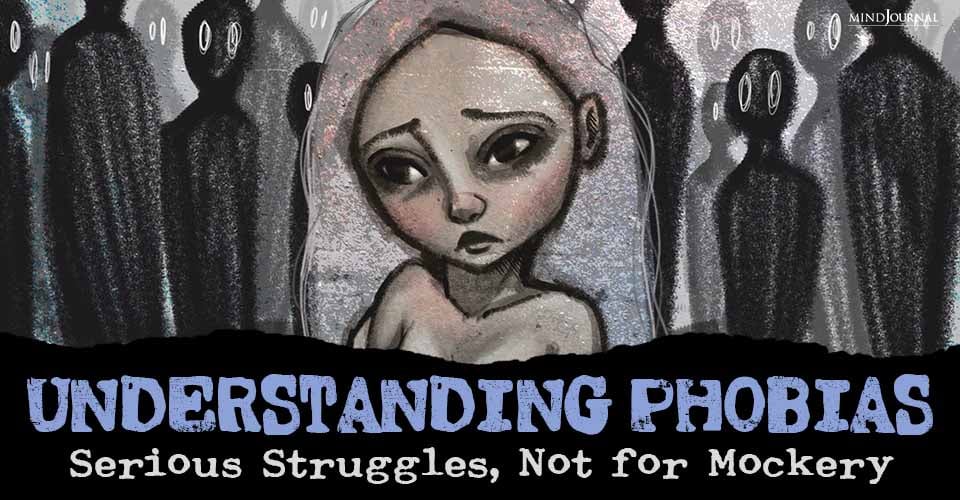Think of a time when you woke up in the middle of the night, soaking in sweat, shaking with fear, and feeling your heart in the mouth. Yes! If you have been there, you know nightmares are no fun. They are absolute terror.
And it’s understandable that you might be having nightmares recently, the meanings of which you have no clue about and this is how you stumbled upon this article.
Even a person with sound mental health can seldom have their dreams turn into dark, vivid, and terrifying images, interrupting their sleep. Sadly, some people find it extremely difficult to fall asleep, once they wake up from a nightmare.
It is absolutely natural to have nightmares now and then. Many children have nightmares but they generally stop between the age of 9 to 11 years but if the nightmares keep disturbing your sleep past that age, you might as well be having them for the rest of your life. Interestingly, children have more nightmares than adults. About 10-50% of the children have them while only a mere 2.5-10% of the adults have them.

Read 8 Quotes By Elon Musk That Will Motivate You To Follow Your Dreams
What causes nightmares?
Nightmares can have their sources in trauma, physical illness, stress and anxiety, or psychopathology. Both the prevalence of nightmares and the relation between nightmares and measures of psychopathology have been extensively studied.
Some other causes of nightmares according to research are:
- Hyperarousal & impaired fear extinction
- Childhood adversity
- Psychiatric disorders
- Genetics
- Medication and substance abuse
- Lack of proper sleep
- Exposure to disturbing fiction & scary movies, books etc before bed
Read Interpreting Your Dreams: What Messages Dreams Give You About Your Life
How is a nightmare different from dreams?
Dreams are images and sensations created by our subconscious mind with the help of the information we perceive in our waking life. Unlike nightmares, dreams are not only imageries that have a horrific or fear-evoking element in it.
Dreams can be soothing, based on wish-fulfillment, fun, romantic, and sometimes bizarre, disturbing or frightening. Some dreams will actually leave you grinning when you wake up, wishing to go back to sleep to complete it.
A nightmare, on the other hand, has an aversive nature – no one really feels gratified, pleased or pacified after experiencing a nightmare.
Hartmann (1984) defined a nightmare as a long, frightening dream that awakens the sleeper, and awakening from a frightening dream has been used as an operational definition of nightmares by others. (1) Some of the researchers believe that nightmares are categorically an individual experience and hence is better left for the participants to describe.
Nightmares come in different forms and shapes having very distinct themes, contexts, feel, and varying vividness. Your Nightmares might surprisingly be trying to hint you at something you have been long ignoring.
Analyzing the meaning of nightmares is not too difficult when you know the key themes and compare them with your current life incidents.

Here’re 10 common nightmares and what they might mean for you.
Once you go back and retrospect, you will realize they are simply reflecting your life and what you are currently going through.
1. Drowning:

Often you might dream of drowning in some deep water body; it could either be you slipping deeper into the depths of water by yourself or it might be someone trying to drown you in the water with force while you struggle to get out of it.
Drowning nightmares will characteristically occur when a person is going through an emotionally overwhelming phase of life. A person who has nightmares of drowning might be having some repressed or badly regulated emotions – related to work, career, contemporary relationships, family or friends, which need to be addressed and resolved.
These are the thoughts or feelings that need to be processed and heard in conscious life.
2. Being trapped:

The nightmare theme of being trapped can occur in different forms – either you are trapped in a place where chances of escape are thin or you have been trapped in a place from where escape is possible, with a little effort on your part.
Very likely, a trapped nightmare means that you are facing a conflict situation in your life. It literally means you feel trapped in a life situation from which escape is getting difficult because of your inability to process the means of escape or you find the trapped situation both approachable and avoidable and hence the conflict.
Ask yourself, are you complying with something which you genuinely don’t want to continue doing?
Are you going against your deepest desires?
Seeing oneself physically trapped might reflect the ‘stuckness’ in real life. It can be in varied fields of your life – professional or personal. You might be trapped in an abusive relationship, or in financial debt, lagging behind in academics or stuck at work with no signs of progress.
3. Falling:

This is typically one of the most common nightmares. Whether you are falling from a tree, from skyscrapers, from cliffs, from the terrace, from the sky, or anywhere, falling nightmares indicate stress and anxiety. It also is associated with physical fatigue and burnouts.
When the body hits the bed after a long, extremely tiresome day, your chances of having a falling nightmare become increasingly high.
Are you working overtime hours beyond your physical capacities?
Are you hydrating yourself enough and resting well?
Read 6 Ways People Avoid Their True Feelings Which Does More Harm Than Not
4. Being shot in your dream:

Nightmares about being shot can have different contexts depending on what you experienced. You could be shot in a war which would mean a past experience of a conflict or fall out with a specific convention.
Even though interpretations are always more meaningful when the context is taken into consideration but on a general extent, being shot signifies that you are avoiding some kind of confrontation. It might be with a friend, your parents, your colleagues, your partner, your neighbor, or even yourself.
It might indicate a guilt-triggering thought that you might be trying to suppress.
Are you being unable to forgive yourself for something you did?
5. Being chased by someone:

The theme of such nightmares can range from being chased by strangers, by an authority figure, by shadowy figures or by yourself.
Each context has different meanings but on a general level, it means that you are avoiding an unwanted and undesirable thought, especially related to the person you see chasing you. If the person chasing you is a shadowy figure, you are anxious about some of the past experiences or you are avoiding an unfinished task.
If the person chasing you is a stranger or an unidentified human figure, you might be apprehensive and uncertain about your near future.
6. Silent Scream:

You might have a nightmare where the only image you have is that of you trying to scream to desperately express something but in vain. No sound comes out of your mouth and you can vividly feel the frustration and helplessness associated with the inability to utter a single word.
Silent screams can mean that you are holding onto information within yourself which you want to unburden to someone but you can’t because you feel unheard.
This can also mean that you are stuck in a frustrating situation yet being unable to do anything about it. You feel helpless and hopeless.
You may be having a conflicted marriage or holding some bitterness towards someone or something, that you want to let go.
7. Of the dead:

Some people dream of a close relative or someone dear to them who recently died and is terrified with the thought that their spirits are about to haunt them. To be very frank, dreams of the dead is not at all related to haunting. It simply means your mind is trying to process the loss and grief connected to it.
When you dream of your own death, you might actually be undergoing some physical illnesses which are making you highly aware of your own mortality.
Dreams of death in general mean you are having difficulty in letting something or someone go – it could be your job, your house, your ex, or even some of your past traumatic experiences.
This could also mean you are having difficulty accepting changes that might be happening in your life.
Read Signs It’s Not Your Body But Your Soul That’s Tired
8. Nightmares about ghosts:

If you have repeated dreams of ghosts, monsters and shadow people, it might indicate some repressed traumatic, stressful incidents like molestation, sexual abuse or victimization of some sorts which immediately need to be resolved.
Dreams of ghosts generally indicate extreme fear or anxiety related to something.
9. Apocalypse:

Vivid and chilling scenes of an apocalypse that might be brought about by a huge tsunami, alien attacks, asteroid, earthquake, or volcanic eruptions either point to an important transformation that is about to happen or is already happening in your life.
The transformation is generally drastic and significant, often stressful and anxiety-provoking like the beginning of professional or married life, divorce, or the death of near and dear ones.
10. Missing important events:

Missing important life events like a job interview, an important exam, a social event in your dreams is a very common theme of a nightmare. These types of dreams leave you feeling helpless, anxious, mortified and disappointed.
Similarly, in waking life, are you disappointing yourself by not being able to live up to your own expectations?
Most of these dreams occur when a person fails to keep up to his own expectations or the expectations of others. It can be a life-long or immediate goal but if you are repeatedly frustrating yourself by not being able to reach your goals, you might have more of these dreams.
Ask yourself, “Are my goals and expectations realistic?” “Are they achievable?”
Reflect on your choices of goals and their contrast to your real potentials.
We often believe these nightmares to have some paranormal indications, which is absolutely not the case, even if we like to believe so. Nightmares, like dreams, have their roots in our unconsciousness and are triggered by psychological issues.
Now it’s your turn…
Are these nightmares simply symptomatic of an underlying clinical condition? Or do they have other supernatural connotations? Let me know in the comments section what you think of your nightmares.
Reference:
- See also: Coalson, 1995; Feldman & Hersen, 1967; Hersen, 1971; Levin, 1994; Levin & Hurvich, 1995; Miller & DiPilato, 1983










Leave a Reply